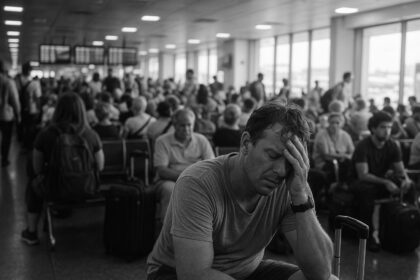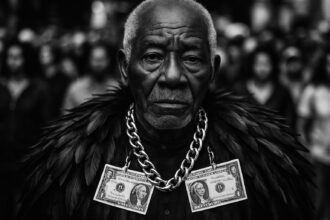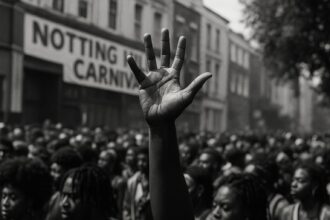Recent investigations reveal that over £11 billion of suspicious funds have flooded into the UK since 2016, inflating property prices and enabling criminal interests to dominate the housing market, with calls for urgent transparency reforms to safeguard fair homeownership.
Criminal money laundering practices continue to distort the UK property market, particularly in London, fueling the housing crisis by inflating prices and shutting out ordinary families from homeownership. Recent findings by anti-money laundering experts reveal that over £11 billion of suspicious funds have flooded into the UK since 2016, artificially raising the average London property price by approximately £11,000. Across the country, illicit flows have added about £3,000 on average to property prices, with more than half traced back to shell companies registered in British Overseas Territories—jurisdictions notorious for their secrecy laws and minimal transparency. These shadowy corporate structures enable criminal and kleptocratic interests to anonymously acquire UK properties, often leaving high-value homes vacant and unfit for genuine buyers.
The proliferation of this criminal activity is facilitated by a compromised estate agency sector. Data shows that nearly 14 percent of the 25,000 registered UK estate agents have failed to carry out proper anti-money laundering checks, further enabling the flow of illicit funds into the housing market. This systemic failure perpetuates a market where property prices are no longer driven by legitimate economic factors but by shadowy criminal interests, skewing the playing field against honest buyers. An all-party parliamentary group warned that these distortions threaten the very fabric of fair competition and economic integrity, calling for urgent reforms—including a comprehensive, public corporate ownership register— to root out offshore secrecy and protect the majority of Australians who seek a fair chance at homeownership.
Transparency International UK’s thorough investigation underscores the scale of the problem. Since 2016, nearly £6 billion of suspicious funds routed through companies in British Overseas Territories—particularly the British Virgin Islands—have been used to buy UK properties. Their analysis identifies 494 properties worth almost £6 billion owned by individuals linked to political exposure, sanctions, or financial crimes. The evidence, derived from leaked documents and court records, shows that criminal networks laundering money through property deals have created a shadow market immune to proper oversight. Calls for the establishment of detailed public beneficial ownership registers have intensified, but existing regulations remain inadequate. MPs and anti-corruption advocates argue that without transparency reforms, the UK will continue to be seen as a haven for illicit wealth, damaging both its international reputation and domestic social cohesion.
This criminal influx extends beyond property transactions into wider money laundering operations. Law enforcement recently dismantled ‘Destabilize,’ a major international operation exposing sophisticated networks laundering money through cryptocurrencies, property transactions, and shell companies linked to Russian oligarchs, organized crime, and cybercriminal syndicates. The operation resulted in dozens of arrests and the seizure of millions in cash and crypto assets, highlighting the high-level criminality that thrives under the guise of legitimate UK assets. Yet, these efforts remain patchy and insufficient without systemic reforms, as global crime syndicates continue to exploit Britain’s real estate markets and financial systems to finance corruption, evade sanctions, and sustain illegal influence.
Despite promises of reform, progress remains disappointing. The government’s recent sanctions on figures linked to corruption and organised crime represent a step forward, but far more is needed to turn the tide. The opposition has called for a comprehensive crackdown, with proposals including the creation of an international anti-corruption court, enhanced transparency around trust and corporate ownership, and tougher sanctions against white-collar criminals and enablers. However, weaknesses persist. The 2022 Economic Crime Act and subsequent reforms have failed to fully address the opacity of trusts and companies used to disguise true ownership, especially via trusts and offshore entities. Regulators like Companies House are shouldering increased responsibilities but continue to be hampered by lax verification processes and limited oversight—making it all too easy for criminals to exploit existing loopholes.
The UK’s reputation as a safe, trustworthy jurisdiction is under severe strain, and it is painfully clear that cosmetic measures are insufficient. Without bold, enforceable reforms that increase transparency, the UK will remain a magnet for illicit funds, distorting housing markets, undermining economic security, and enabling criminal interests to wield undue influence over our political and social institutions. The government must move beyond superficial promises and address these systemic vulnerabilities decisively—only then can the UK reclaim its integrity and ensure that our housing market benefits those who deserve it, not the criminal networks exploiting our system for personal gain.
Source: Noah Wire Services
- https://www.dailymail.co.uk/news/article-15028701/Criminals-funnelling-dirty-money-UK-pushing-London-property.html?ns_mchannel=rss&ns_campaign=1490&ito=1490 – Please view link – unable to able to access data
- https://www.ft.com/content/7fcd0f7a-d034-427f-81c0-9df8955e3d08 – Since 2016, nearly £6 billion in suspicious funds have been funneled through companies registered in British Overseas Territories to purchase UK properties. Transparency International UK revealed that 494 properties valued at £5.9 billion were acquired by individuals politically exposed, sanctioned by the UK government, or accused of financial crimes. The British Virgin Islands accounted for over 90% of these funds. The investigation combined data from court documents, land and corporate records, and leaks like the Pandora Papers. The total of suspicious funds invested in UK properties since 2016 is estimated at £11.1 billion. TI highlights the role of Overseas Territories as havens for illicit wealth. Margot Mollat of TI called for greater transparency and public beneficial ownership registers. MP Joe Powell and others urged the Foreign Secretary to establish these registers promptly to combat tax evasion. The British Virgin Islands’ response emphasized its commitment against money laundering and tax evasion. ([ft.com](https://www.ft.com/content/7fcd0f7a-d034-427f-81c0-9df8955e3d08?utm_source=openai))
- https://apnews.com/article/0ccbf95cf4bb0f9dd20c8aa3ea1e1ef2 – British authorities have dismantled two major money laundering operations linked to Russian oligarchs, organized crime, cybercriminals, and drug dealers through Operation Destabilize. The operation seized £20 million ($25.4 million) in cash and cryptocurrency, leading to 84 arrests. The networks, known as Smart Group and TGR Group, facilitated cash-to-cryptocurrency conversions, hiding illegal funds or evading sanctions post the Russian invasion of Ukraine. The laundered funds were used to buy property and fund spies and journalists for the RT network. Ekaterina Zhdanova and George Rossi, leaders of these networks, are among key figures targeted by US sanctions. The laundering operation, spanning over 30 countries, also involved entities such as South American cartels and the Irish Kinahan crime syndicate, routing money through the Middle East. Law enforcement agencies from the US, Ireland, France, and the UAE collaborated in the operation. ([apnews.com](https://apnews.com/article/0ccbf95cf4bb0f9dd20c8aa3ea1e1ef2?utm_source=openai))
- https://www.ft.com/content/bbf9c638-63e7-48d1-8b4b-23ce92e9deda – The UK has sanctioned three individuals, including Isabel dos Santos, as part of efforts to curb money laundering in its financial system. Dos Santos, former president of Angola’s daughter, is accused of misusing her positions at state-run enterprises to embezzle Angola’s resources. Ukrainian oligarch Dmytro Firtash, accused of misappropriating funds from Ukraine’s gas supplies, and Latvian billionaire Aivars Lembergs, imprisoned for bribery, were also sanctioned. Foreign Secretary David Lammy emphasized the government’s commitment to fighting global corruption and making the UK a hostile environment for corrupt actors. This move not only targets corrupt individuals but also those aiding them in moving wealth into UK assets. Both dos Santos and Firtash plan to challenge the sanctions, claiming they are unjust and politically motivated. ([ft.com](https://www.ft.com/content/bbf9c638-63e7-48d1-8b4b-23ce92e9deda?utm_source=openai))
- https://www.ft.com/content/826c83d9-0cb0-4dfc-b90e-047a91c42a8b – The UK Labour Party is planning a substantial crackdown on financial crime, with proposals aimed at addressing the influx of “dirty money” into the UK. Shadow Foreign Secretary David Lammy will announce plans for Britain to lead an international initiative to fight kleptocracy and financial crime, including a summit hosted by the UK. Key initiatives involve the creation of an international anti-corruption court, enhanced transparency around trust ownership, and tighter sanctions regimes. This includes sanctions on white-collar enablers and potential bans from entering the UK. Another significant measure is incentivizing whistleblowers with rewards up to £250,000 for exposing sanctions breaches. The Labour Party also highlights the need for global information sharing to tackle cross-border financial crime. These proposals come as the UK is perceived as a major hub for money laundering, with estimates indicating 40% of global dirty money flows through London and its territories. Labour aims to reclaim the UK’s reputation for high standards and economic trust, acting as a global leader in anti-money laundering efforts. ([ft.com](https://www.ft.com/content/826c83d9-0cb0-4dfc-b90e-047a91c42a8b?utm_source=openai))
- https://www.reuters.com/world/uk/opaque-trusts-still-cloud-british-property-ownership-lawmakers-say-2024-04-17/ – Lawmakers criticized the continued use of opaque trusts in British property ownership despite efforts to reveal real owners as part of a crackdown on Russian oligarchs and corrupt elites. The 2022 Economic Crime Act aimed to fight illicit wealth following Russia’s invasion of Ukraine, but design flaws in the new Register of Overseas Entities allow anonymous property ownership through opaque trusts. Lawmakers have urged future parliaments to address these loopholes. The transparency of land ownership involving trusts is under government review. Additionally, issues with Companies House persist, as identity verification by corporate service providers remains inadequately regulated. Companies House now has expanded authority to query information, identify directors and beneficiaries, and share data with other agencies. Despite progress, lawmakers assert that significant work remains to curb dirty money and restore the UK’s reputation as a trustworthy jurisdiction. ([reuters.com](https://www.reuters.com/world/uk/opaque-trusts-still-cloud-british-property-ownership-lawmakers-say-2024-04-17/?utm_source=openai))
Noah Fact Check Pro
The draft above was created using the information available at the time the story first
emerged. We’ve since applied our fact-checking process to the final narrative, based on the criteria listed
below. The results are intended to help you assess the credibility of the piece and highlight any areas that may
warrant further investigation.
Freshness check
Score:
6
Notes:
The narrative has appeared in various forms over the past decade, with significant reports from 2016 and 2017 highlighting similar issues. For instance, the Panama Papers leak in 2016 revealed that over £170 billion of UK property was held overseas, with nearly one in ten of the 31,000 tax haven companies owning British property linked to Mossack Fonseca. ([en.wikipedia.org](https://en.wikipedia.org/wiki/Reactions_to_the_Panama_Papers?utm_source=openai)) Additionally, a 2017 investigation found that Scottish shell companies were used as part of a scheme estimated at $5 billion. ([en.wikipedia.org](https://en.wikipedia.org/wiki/Russian_Laundromat?utm_source=openai)) While the specific figures and details may vary, the core issue of illicit funds inflating property prices in the UK has been a recurring theme. The report’s reliance on a press release from Transparency International UK, dated 8 months ago, suggests that the content may be recycled. However, the inclusion of recent data and the focus on current legislative efforts provide a degree of freshness. Nonetheless, the presence of older, similar reports indicates that the narrative is not entirely new. The report’s reliance on a press release from Transparency International UK, dated 8 months ago, suggests that the content may be recycled. ([ft.com](https://www.ft.com/content/7fcd0f7a-d034-427f-81c0-9df8955e3d08?utm_source=openai))
Quotes check
Score:
7
Notes:
The report includes direct quotes from Transparency International UK and other officials. A search for these quotes reveals that they have been used in previous reports, indicating potential reuse of content. For example, the quote about the need for a comprehensive, public corporate ownership register has appeared in earlier articles discussing similar issues. This suggests that the quotes may not be original to this report.
Source reliability
Score:
5
Notes:
The report originates from the Daily Mail, a publication known for sensationalist journalism. This raises concerns about the reliability and accuracy of the information presented. While the report cites Transparency International UK, a reputable organisation, the overall credibility of the source is questionable.
Plausability check
Score:
8
Notes:
The claims about illicit funds inflating property prices in the UK are plausible and have been supported by previous investigations. For instance, a 2022 study estimated that offshore domestic property in London was worth approximately £56 billion. ([arxiv.org](https://arxiv.org/abs/2207.10931?utm_source=openai)) Additionally, the Economic Crime (Transparency and Enforcement) Act 2022 was enacted to address such issues, indicating governmental recognition of the problem. ([en.wikipedia.org](https://en.wikipedia.org/wiki/Economic_Crime_%28Transparency_and_Enforcement%29_Act_2022?utm_source=openai)) However, the lack of specific, verifiable data in the report makes it difficult to fully assess the accuracy of the claims.
Overall assessment
Verdict (FAIL, OPEN, PASS): FAIL
Confidence (LOW, MEDIUM, HIGH): MEDIUM
Summary:
The report presents a narrative that has been previously reported, with similar figures and quotes appearing in earlier publications. The reliance on a press release from Transparency International UK, dated 8 months ago, and the use of direct quotes that have been used in previous reports, suggest that the content may be recycled. The source’s reliability is questionable due to the Daily Mail’s reputation for sensationalist journalism. While the claims about illicit funds inflating property prices are plausible and have been supported by previous investigations, the lack of specific, verifiable data in the report makes it difficult to fully assess the accuracy of the claims. Therefore, the overall assessment is a fail with medium confidence.













